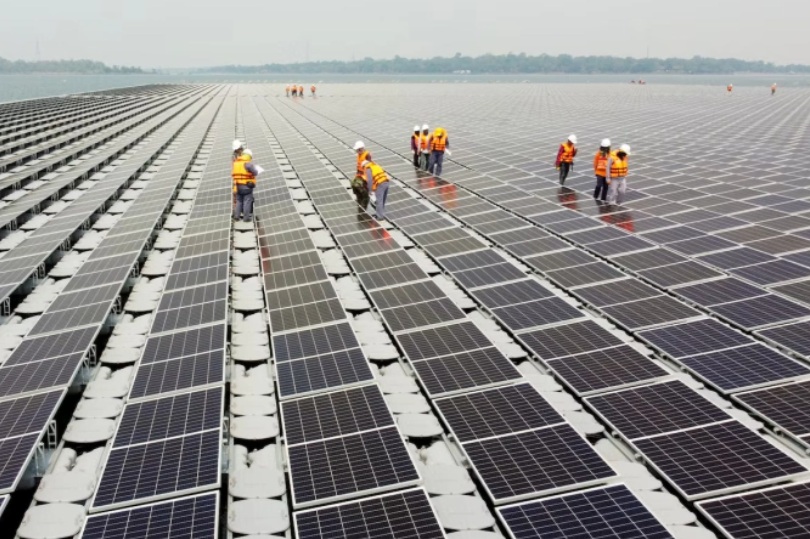The US Department of Commerce has recently imposed high tariffs on most imported solar panel products from Southeast Asia.
This is the latest development in a year-long trade investigation into Chinese companies accused of dumping and illegal subsidization.
As a result, anti-dumping and countervailing duties are applied to specific companies and countries, with significant variations. Jinko Solar, a manufacturer with a factory in Malaysia, faces the lowest duty of 41.56%. In contrast, Trina Solar, producing in Thailand, is subject to a duty as high as 375.19%. Neither company has issued an official response yet.
Cambodian manufacturers, due to their non-cooperation with the investigation, are slapped with an extraordinarily high duty of over 3,500%.
Previously, the US accused large Chinese solar panel manufacturers of setting up production bases in Malaysia, Thailand, Vietnam, and Cambodia to circumvent tariffs and continue supplying cheap products to the US market. These products are alleged to be sold below production costs and receive opaque financial support from the Chinese government.
The investigation was initiated by two energy companies, First Solar Inc. (US) and Hanwha Qcells (South Korea), who are not directly affected by the tariffs but argue that unfair competition practices harm the entire domestic clean energy industry.
According to the US Department of Commerce data, solar panels from the above-mentioned four Southeast Asian countries accounted for 77% of US imports in 2024, valued at over $10 billion.
The new duty rates are generally significantly higher than the preliminary tariffs announced in late 2024, reflecting a tougher stance by the US government. This move is expected to reduce the influx of cheap solar panels into the domestic market and create opportunities for US businesses to enhance their competitiveness.
However, the short-term impact is predicted to be substantial. US renewable energy developers may face temporary supply shortages, leading to increased investment costs for solar projects. As the US pushes for an energy transition towards cleaner sources, disruptions in the supply chain could affect the progress of many large-scale projects.
Analysts forecast that supply from Laos and Indonesia—countries not yet subject to tariffs—may increase in the coming period as global manufacturers seek to restructure their supply chains to mitigate damages from US trade remedies.
Beyond economic factors, the decision to impose tariffs also reflects a trend of decoupling supply chains from China and underscores the Washington administration’s tougher stance on strategic trade issues. It is also part of an effort to protect the domestic clean energy industry, a sector prioritized in President Biden’s infrastructure investment and emissions reduction programs.
The US Department of Commerce stated that the International Trade Commission (ITC) will make a final decision on the duties in June 2025. If approved, this decision will officially take effect and significantly alter the landscape of solar panel imports into the US in the coming years.
TH (Tuoitrethudo)









































